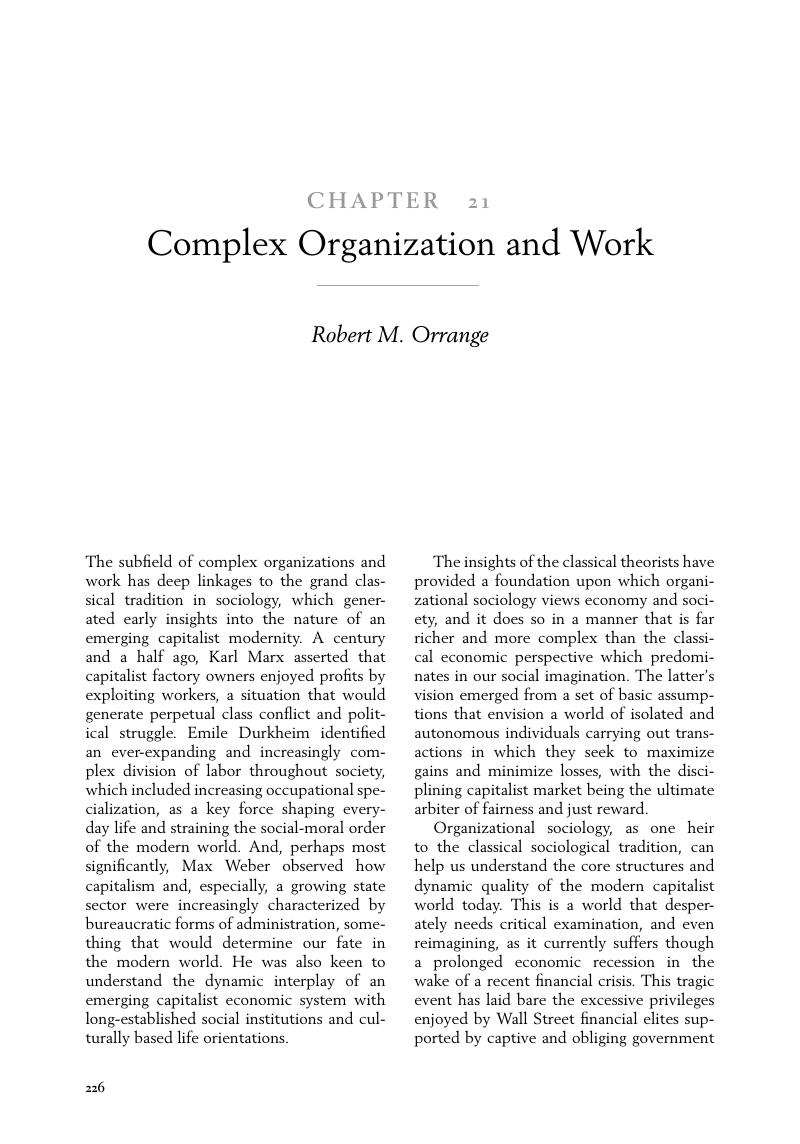Book contents
- The Cambridge Handbook of Sociology
- The Cambridge Handbook of Sociology
- Copyright page
- Contents
- Figures
- Tables
- Contributors
- Introduction
- Part I The Development of Sociology
- Part II Sociological Theory
- Part III Sociological Research Methods
- Part IV Culture and Socialization
- Part V Social Structure and the Organization of Society
- Chapter 20 Sociological Perspectives on Social Structure
- Chapter 21 Complex Organization and Work
- Chapter 22 Sociology of Voluntary Associations
- Part VI Social Inequality and Diversity
- Part VII Social Institutions
- Part VIII Social Problems and Deviant Behavior
- Part IX Locality, Geography, and the Environment
- Part X Social Change
- Index
- References
Chapter 21 - Complex Organization and Work
from Part V - Social Structure and the Organization of Society
Published online by Cambridge University Press: 21 September 2017
- The Cambridge Handbook of Sociology
- The Cambridge Handbook of Sociology
- Copyright page
- Contents
- Figures
- Tables
- Contributors
- Introduction
- Part I The Development of Sociology
- Part II Sociological Theory
- Part III Sociological Research Methods
- Part IV Culture and Socialization
- Part V Social Structure and the Organization of Society
- Chapter 20 Sociological Perspectives on Social Structure
- Chapter 21 Complex Organization and Work
- Chapter 22 Sociology of Voluntary Associations
- Part VI Social Inequality and Diversity
- Part VII Social Institutions
- Part VIII Social Problems and Deviant Behavior
- Part IX Locality, Geography, and the Environment
- Part X Social Change
- Index
- References
Summary

- Type
- Chapter
- Information
- The Cambridge Handbook of SociologyCore Areas in Sociology and the Development of the Discipline, pp. 217 - 225Publisher: Cambridge University PressPrint publication year: 2017



